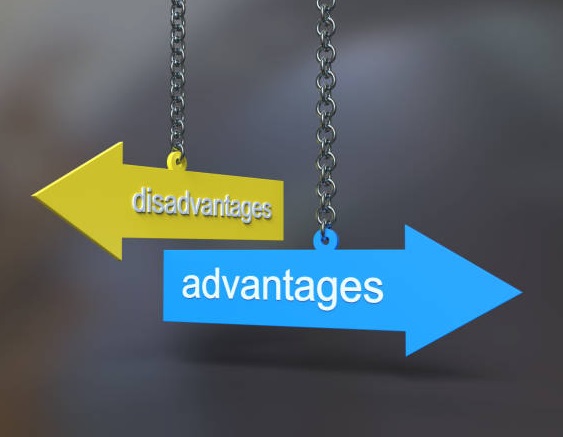An Extended family is a type of familial relationship that is larger than the nuclear family. This type of familial relationship is typically made up of grandparents, aunts, uncles, and cousins. They usually live in the same house as one another and share a strong bond of love and affection with one another.
However, not everyone in this type of family is directly related by blood or by marriage to one. Family relationships can be complex and can include different degrees of connections within multiple generations of family members.
Who are Extended Families in Australia?
In Australia, extended families play an important role in society. Extended families can be defined as any family that is not the nuclear family. Extended families are made up of multiple family members that are related by blood or by marriage. This can include grandparents, aunts, and uncles, cousins, or brothers and sisters.
In Australia, extended families are most common in rural areas and smaller towns. However, they are becoming more common in major cities as well. Extended families are often involved in caring for their grandchildren and other dependents.
They also help relatives with household chores and other day-to-day tasks. This allows them to look after their own families and spend time with their children. One of the ways that extended families work is through childcare. Grandparents or other members of the family will often care for grandchildren while their parents are at work.
Extended family law act grandparent’s rights
 In Australia, grandparents have the right to custody of their grandchildren if they can prove that they are the closest blood relatives of the child.
In Australia, grandparents have the right to custody of their grandchildren if they can prove that they are the closest blood relatives of the child.
However, it is possible for grandparents to lose their custody rights if the parents ask the court or Department of Family and Community Services to remove their rights over the children. This can happen if the parents of the child give the grandparents a reason why they should no longer be allowed to have custody of the child.
The court will also decide who the children are to live with after the breakup of their parent’s relationship. If both parents agree on this, the children will continue living at home with their parents after the divorce. If the parents do not agree on who the children should live with, then a judge will decide the matter for them.
Grandparents also have many legal rights when it comes to seeing their grandchildren and being involved in their lives.
For example, the courts require that the grandparents be treated in the same way as the parents when it comes to getting information about the children’s welfare and medical care. Grandparents are also allowed to see their grandchildren unsupervised unless a court order says otherwise.
In addition, the grandparents may sue for the custody of the children if they are worried that they will be neglected by their parents or if they believe the parents’ behavior puts their children at risk. The general rule is that parents have legal custody of their children and therefore can make decisions about them without consulting anyone else.
However, there are many exceptions to this rule. For instance, parents do not have legal custody of a child who has been placed in foster care. If a foster parent raises a child to adulthood, then the foster parent will be awarded custody of the child by law.
Why Extended Families Exist?
Australians have a strong tradition of extended families. Extended families provide a support network for children and offer opportunities for socializing, sharing experiences, and caring for each other in times of need. Children and grandchildren often live nearby to their parents or grandparents and frequently visit them, enabling them to build close relationships from an early age.
Family members are also able to rely on one another in times of crisis and provide financial support when needed. The relationship between parents and children is often strong as they share experiences together over a number of years. As a result, many Australian families are characterized by a strong sense of togetherness, which is maintained even following separation or divorce.
Extended families are important for individuals’ well-being in a number of ways. They play an important role in supporting children as they grow up and are often an important source of emotional support for family members when times are difficult.
They also provide an opportunity to socialize and interact with other family members on a regular basis and encourage children to maintain positive relationships with their extended family.
Who are the Extended Family Members in Australia?
 The Extended Family Members in Australia are those people who are related to you by blood or marriage. This can include your parents, siblings, grandparents, aunts, uncles, cousins, nieces, and nephews.
The Extended Family Members in Australia are those people who are related to you by blood or marriage. This can include your parents, siblings, grandparents, aunts, uncles, cousins, nieces, and nephews.
Extended Family Member Roles
In some cases, people can also be members of the extended family who are not related by blood or marriage, such as in-laws, step-parents, guardians, or other caregivers.
Australian law recognises the extended family members as those who were part of your life before the law came into existence and who had responsibility for your upbringing and education.
In most cases, these people are still responsible for looking after your welfare today, regardless of how close you are to them. In certain circumstances, it is possible for them to make decisions on your behalf, for example about your medical treatment. They can also act as witnesses in court if you die without a will and play an important role in funeral arrangements when you die.
When you are sick, incapacitated, or aged you may need assistance from Extended Family Members while you are unable to take care of yourself. This is often the case if you are physically disabled or require long-term care for a medical condition.
What are the benefits of an extended family in Australia?
One of the great benefits of having an extended family in Australia is that you are never too far away from support and assistance. If you ever find yourself in a difficult situation, your relatives are likely to be there for you. For example, if you fall on hard times and need financial help, someone in your family will always be willing to lend a hand.
However, your extended family is not just about giving you financial assistance. It is also about providing emotional support when you need it most. If you have a problem or are having a difficult time, you can always turn to your family for support. They will always have time for you and will always do their best to help. As a result, you will find it much easier to cope with difficult times when you are close to your extended family.
What are the advantages and disadvantages of an extended family?
 There are many advantages and disadvantages to being part of a large family.
There are many advantages and disadvantages to being part of a large family.
Some advantages include the support and generosity of family members, the shared experiences and memories, and the ability to provide help when you need it.
However, there are also some disadvantages, such as having too many people to take care of and dealing with the emotional and financial burdens of raising children.
A big family can provide children with many advantages. Children grow up in a big family surrounded by love and support from other family members. They get to see and experience a wide variety of cultures firsthand and can learn about different beliefs and traditions from each family member.
Having a big family can also be a source of strength for children going through hard times, and they can learn valuable life lessons from their older siblings and cousins.
However, having a big family can also come with many disadvantages. It can be hard to keep track of all the family members and keep track of everyone’s schedule. Also, it can be hard and expensive to care for many children at once.
What are the negative effects of extended family?
There are a number of negative effects that can come from extended family relationships. Some of these negative effects include tension, conflict, and jealousy.
Extended family can also cause a strain on the relationship of the immediate family unit and lead to a breakdown of communication.
Prolonged exposure to an emotionally abusive family member can have a negative effect on a child’s self-esteem and emotional well-being, which can lead to other mental health concerns later on in life. The effects of prolonged exposure to an emotionally abusive family member can be long-lasting, and in some cases, can lead to psychological problems or even physical violence in adulthood.
Another negative aspect of extended family relationships is the interference of other family members in the daily life of an individual or a couple. This can lead to feelings of resentment and jealousy among other family members who may feel that they are not being appropriately acknowledged or supported.
Need Legal Help?
If you need help, please contact the Brisbane Family lawyers team at James Noble Law today for a FREE, no-obligation 20-minute consultation. To schedule an appointment with one of our Qualified and experienced Family lawyers Brisbane.
Find Brisbane family lawyers on Google Maps near you.
You may also like to know more information about the
- Grandparents rights QLD, Australia and Living Arrangements For Children.
- Parental Responsibilities and Children’s Issues.
- Parental Conflict and Effect on Children.
- CHILD SUPPORT.
- Learn about Family court portal.
- Learn about Brisbane court house.
- Spousal maintenance qld, Brisbane, Australia.
- Online Divorce application In Australia.
- Divorce property settlement examples Australia.
- Family Law act 1975.
- Parental Responsibilities and Legislation.
- Mother withholding child from father Australia.
Comments
Post a Comment